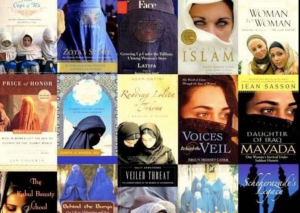I recently read David L. Holmes' The Faiths of the Founding Fathers, which I heartily recommend.
He makes a compelling case against the widespread claim that Founding Fathers were recognizably "Christian" in their worldviews and that the US was founded a Christian Nation. If by "Christian" one means theologically traditional (i.e., subscribing to the Trinity, Christ's Resurrection, miracles, a personal God, …) Christians–much less evangelical "Bible-believing" ones–the historical evidence seems overwhelmingly against it. He takes a close look at the writings, documented behavior and impressions of contemporaries regarding the personal beliefs of George Washington, Benjamin Franklin, John Adams, Thomas Jefferson, and James Madison, and with the exception of my fellow Bostonian John Adams–who was a staunch Christian–the patriarchs of the American Revolution seem to have been impeccably Deist (albeit of the moderate English as opposed to radical French variety) in their outlooks, like many 18th century intellectuals.
That's not to say they were hostile to Christianity or even that they all had the same religious sensibilities (hence the plural in the book's title, which was a nice touch). Their attitude towards the specific tenets of Christian faith varied and they clearly saw Christianity itself as a positive force in American society, to the extent that some were quite regular in attending church.
But their involvement in the rituals and religious life of their day was strikingly curtailed. When they attended church, they did so as spectators rather than participants. Most chose not to get confirmed, even after it became easy to do so (in early colonial American history, many people weren't able to get confirmed per Anglican tradition due to a shortage of bishops in the Colonies). And most of the Founding Fathers under review here consistently skipped Holy Communion entirely when they did attend church (in fact, if memory serves, there is no evidence of George Washington ever receiving communion as an adult, a fact that by no means went unnoticed by his contemporaries).
Another intriguing aspect of this pattern is how unmoved most of the presidents' wives were by the Deist philosophy that had captured the minds and hearts of so many leading American intellectuals in the late 18th century. Aside from Abigail Adams and Dolley Madison, the founding mothers if you will seem to have been as pious and traditional as their husbands were freethinking and religiously lukewarm.
Incidentally, I don't find claims of America being founded as a "Christian nation" threatening or troubling. They just don't seem to be supported by the facts. And even if they had the weight of history on their side, the point would be academic, as we sure aren't one now.
Moreover, it's quite natural that Christianity should have a special place in Americans collective heart–I was raised a Muslim, but I have a very strong attachment to Christianity, albeit in its IMHO more historically rooted non-evangelical variants–given its ubiquity in American intellectual and cultural life until the late 20th century. But that doesn't change how secular and/or eclectic many of us are today. (In fact, if on poll is to be believed most Americans can't even name all four authors of the Gospels, but can name the four Beatles. Sad commentary on both our cultural literacy and priorities.)
An aesthetic aside: Reading these excerpts from presidential letters and proclamations, I was struck by how bloodless and dry Deist, umm, "inspirational" language was. As a Muslim I obviously don't do the Trinity, but from an stylistic standpoint I almost prefer hearing prayers to Jesus Christ to these cold, dreary invocations of "Heaven" or "Providence". The latter are almost maledictions in my ears, so devoid of passion or beauty are they.
A few other interesting reviews: Ben Witherington and Ponderings on a Faith Journey.













